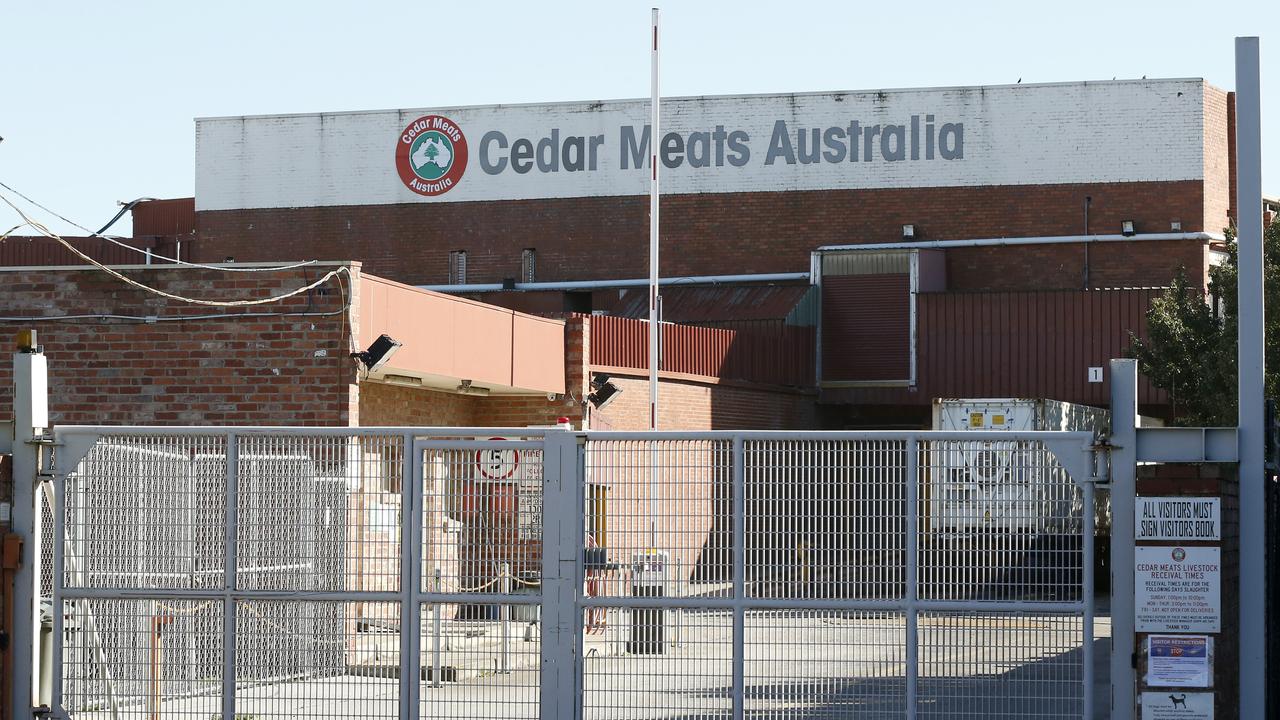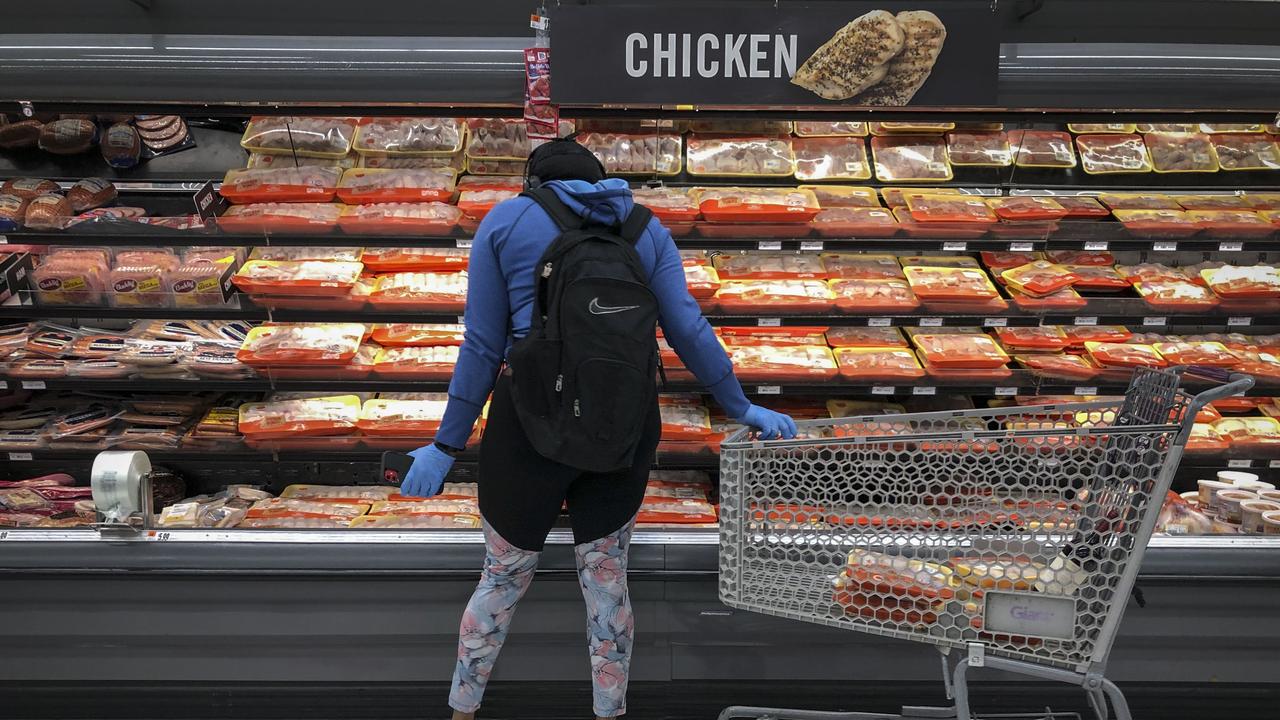Coronavirus in Australia: Melbourne meatworks cluster a sign of things to come as economy roars back to life
A serious outbreak of coronavirus at a meatworks in Melbourne is inevitably a sign of things to come, the Chief Medical Officer has warned.
A serious outbreak of coronavirus at a meatworks in Melbourne is a sign of things to come as life begins to return to normal and the economy restarts, authorities have warned.
Cedar Meats in Brooklyn in the city’s west has been shut down to undergo extensive cleaning and some 300 staff will be tested for COVID-19, with 45 confirmed cases already linked to the facility.
Chief medical officer Professor Brendan Murphy said the outbreak is “obviously of concern” but said it had been “expertly controlled” by authorities in Victoria.
Prof Murphy also said that “very, very extensive tracing of contacts” had occurred quickly, as well as the isolation and quarantine of those workers infected.
“It is a salutary lesson, that outbreak in Victoria, where these are the sorts of things we are likely to keep seeing over coming month, particularly if we do relax some of the measures,” he said.
RELATED: Follow the latest coronavirus updates

Prime Minister Scott Morrison is keen to get the economy going again, with lockdown measures costing $4 billion a week.
Mr Morrison today declared getting people back to work as the next curve to be flattened, with almost one million Australians losing their jobs in a month due to coronavirus.
As businesses reopen and people return to workplaces, Prof Murphy said outbreak clusters are inevitable.
“We will likely see outbreaks and we have been saying for some time that the most important thing is when we do get an outbreak, given the very, very infectious nature of this virus, that we have to have that capacity to quickly test, trace, isolate and quarantine.”
That’s exactly what happened in the case of Cedar Meats, Prof Murphy said.
In a statement to the media, Cedar Meats general manager Tony Kairouz said the safety and welfare of staff, suppliers and customers is of the highest priority.
“All meat processed at our facilities is processed in accordance with Australian standards for food safety and our customers can be confident that the meat processed at our facilities is safe to eat,” Mr Kairouz said.
Food Standards Australia New Zealand said there’s no evidence to suggest that COVID-19 can be spread via food.
And the local sector insists there will not be a situation similar to that seen in the United States.
RELATED: When will lockdown measures ease in your state?

The meat industry in America has been significantly impacted by COVID-19, with almost 5000 cases at 115 different processing facilities across the country.
At least 20 people are dead as a result. The dire toll forced many facilities to close.
Despite the risk of further spread, US President Donald Trump ordered that meatworks reopen to head off a looming supply shortage.
There has been a smaller spate of outbreaks at a handful of meat processing sites in Ireland, forcing their closures. Brazil has also grappled with outbreaks at meatworks.
But there’s no evidence of an increased likelihood of infection outbreak or spread in meatworks facilities here, Patrick Hutchinson, chief executive officer of the Australian Meat Industry Council, said.
Instead, Mr Hutchinson believes the US situation isn’t a meat processing sector issue, but a community infection issue.
“In managing the disease within the community, Australia has been able to (control infection rates), whereas the US has not,” Mr Hutchinson said.
“In order to combat food shortage, President Trump has compelled meat processors to remain open, thus ensuring that potentially infected people are having to work and/or infect other people.
“Again, this is not a meat industry issue, this is a community issue where COVID-19 is brought (into) the plant and infecting people, not caused by the plant infecting people.”

Australia’s meat processing sector has remained open and operational during the coronavirus crisis.
The Melbourne outbreak, “while regrettable”, is not entirely surprising given the industry employs 100,000 people nationally, Mr Hutchinson said.
“The issue in relation to Cedar Meats is that it is a single, isolated case on a single site in Australia.
“The company has worked with Victorian Health to manage this crisis, and Victorian Health do not see this as a human health issue.”
Mr Hutchinson said his organisation had also worked with its members on hygiene and standards education.
“Our processing industry has fared extremely well in comparison to our international counterparts, which reflects the lengths our industry has gone to protect our workforce and community, as well as the strong response in Australia to effectively flatten the curve,” he said.
“We do not anticipate that we will see in the Australian industry the same unfortunate situation in US, Brazil and other countries, and do not expect there to be any food shortage concerns or livestock supply issues.”




